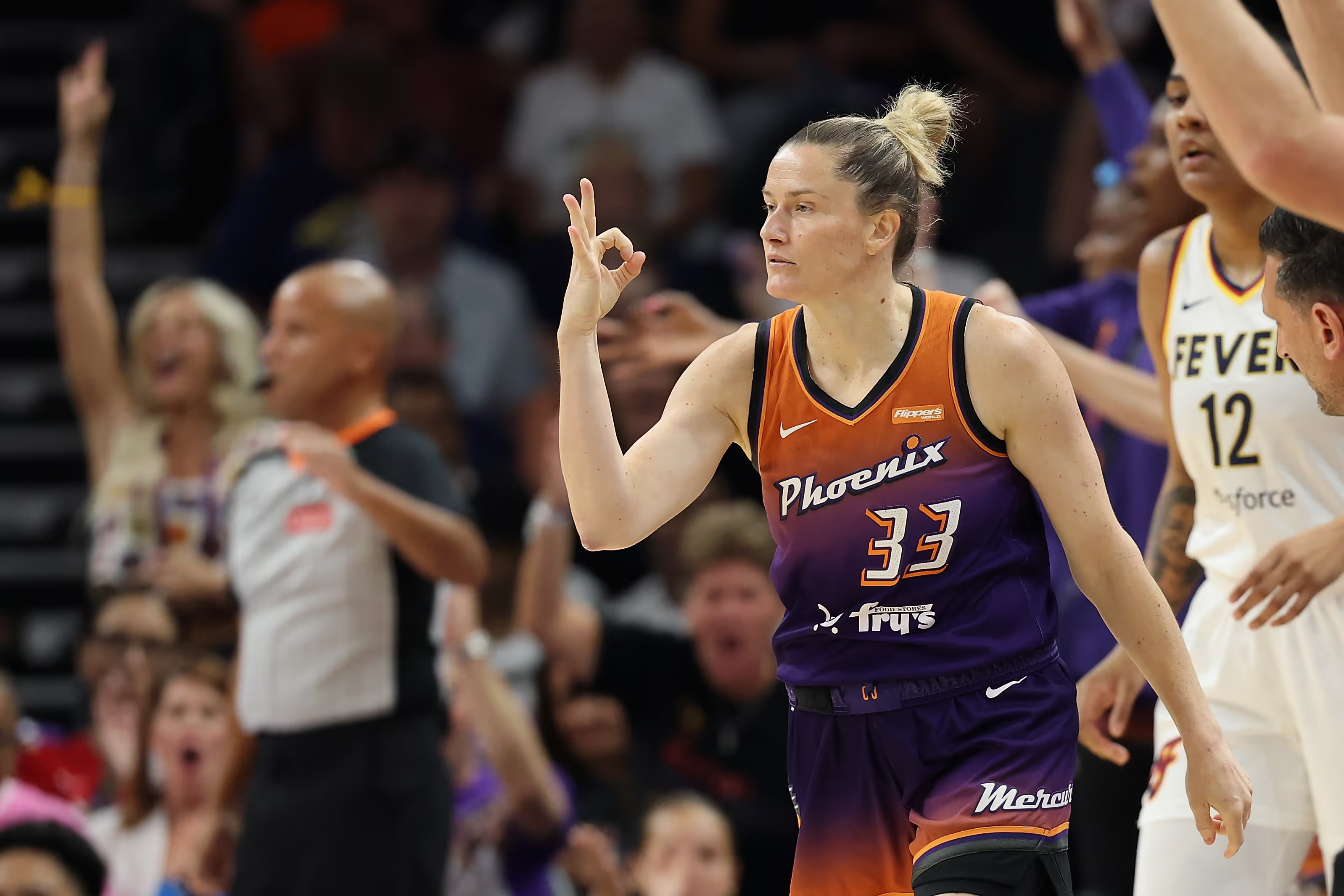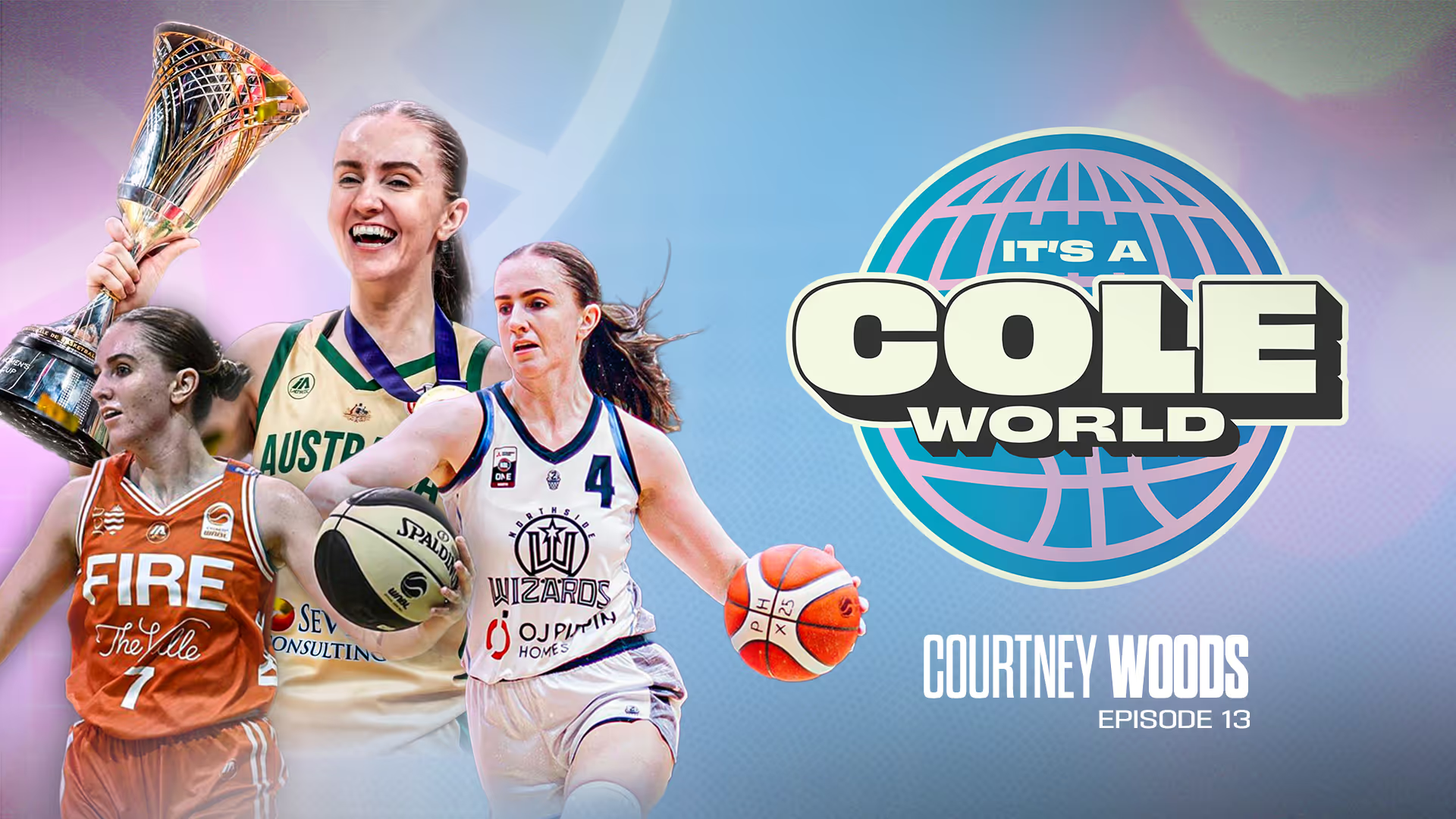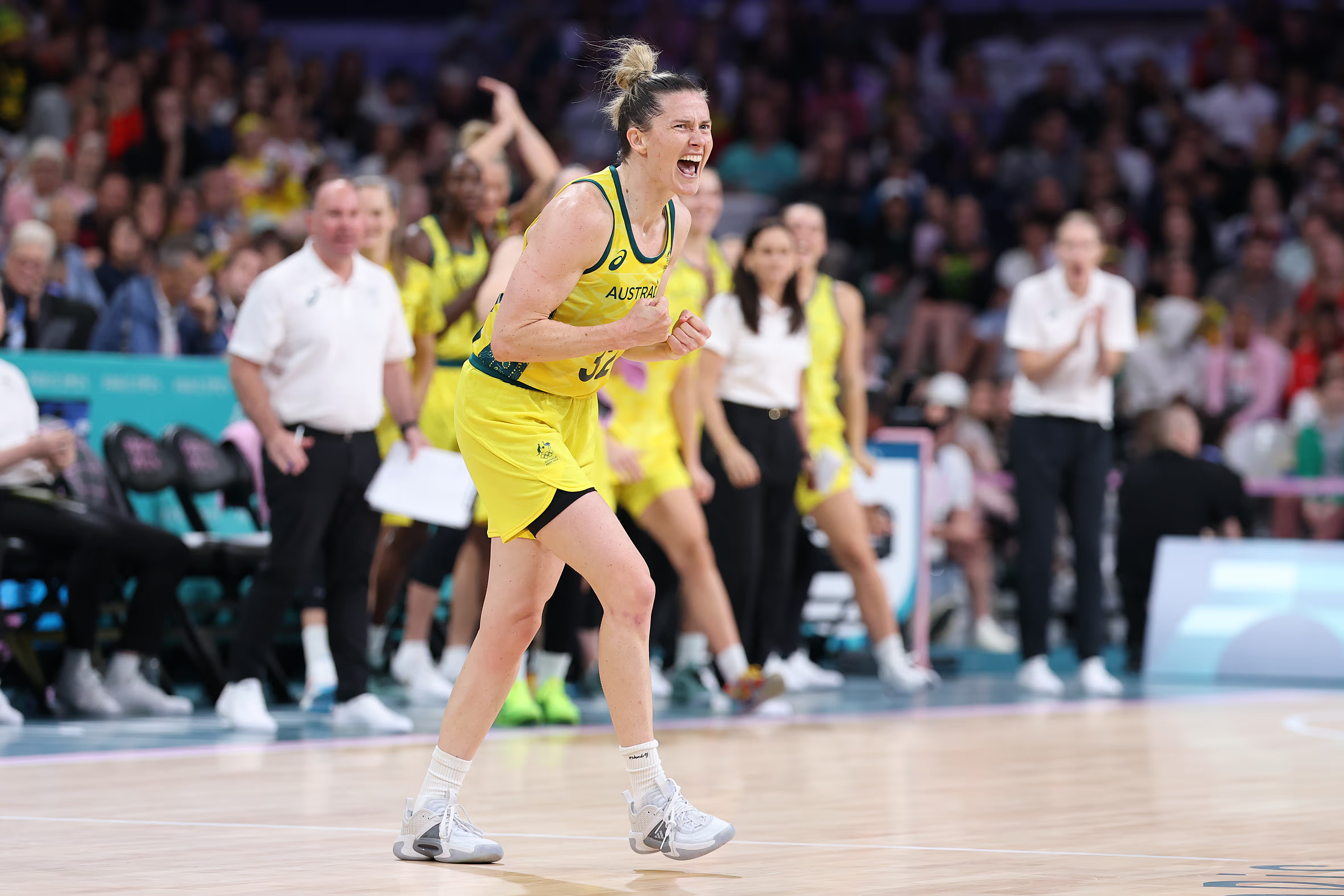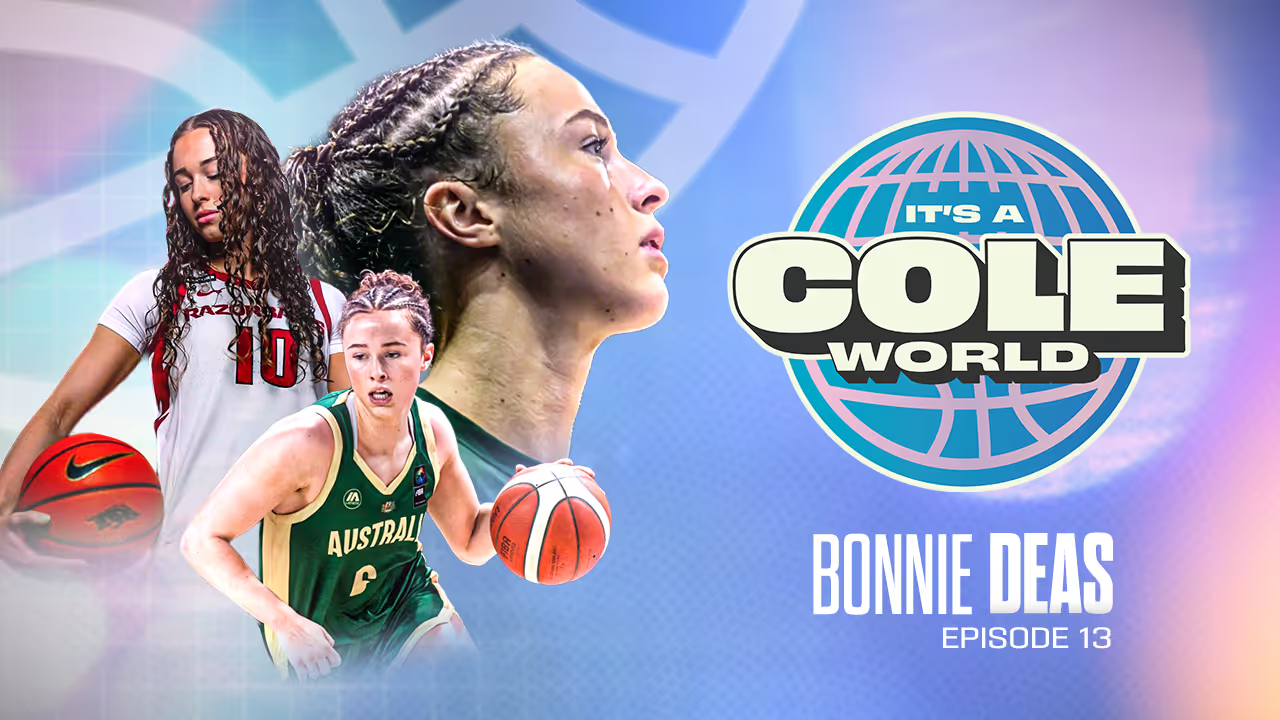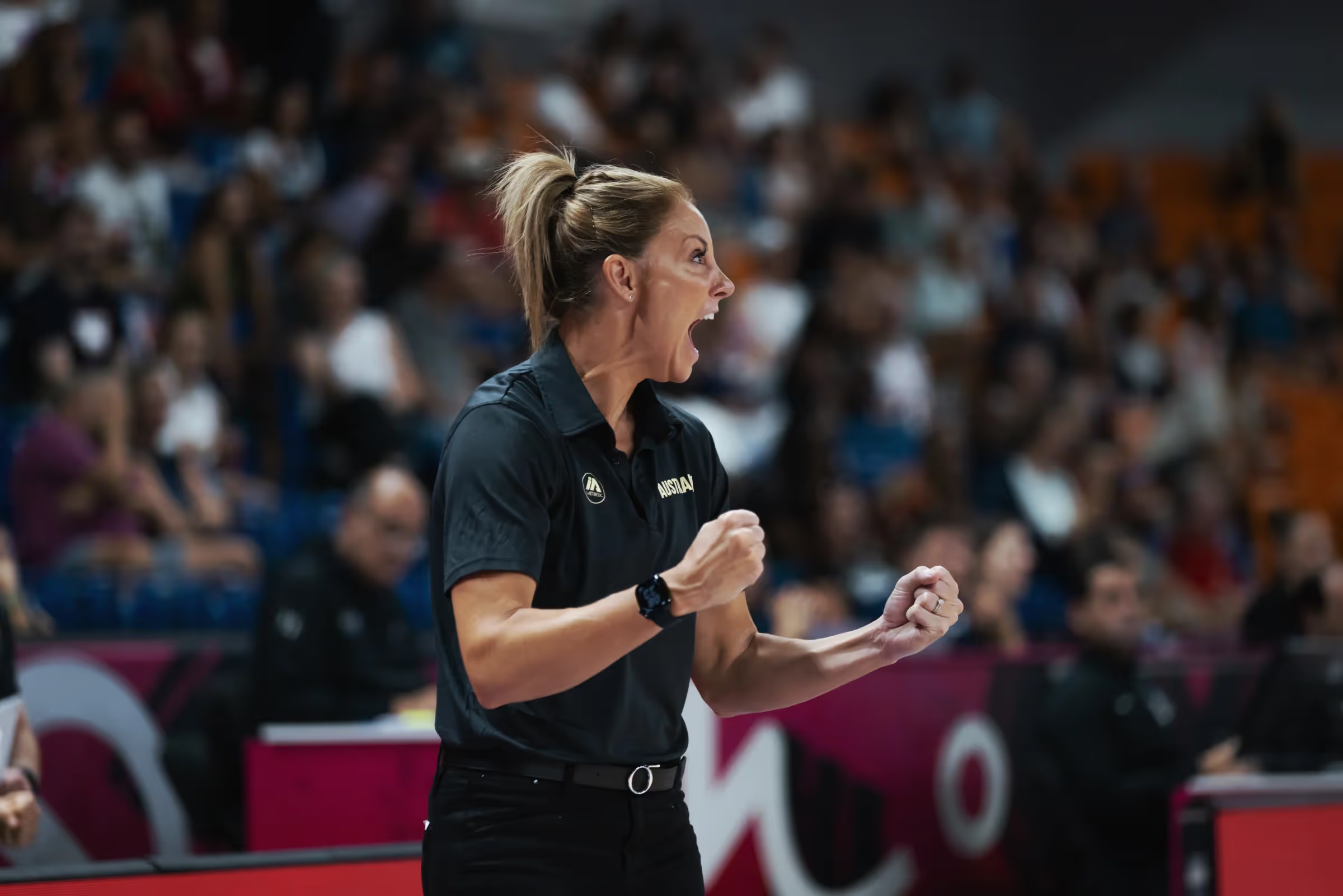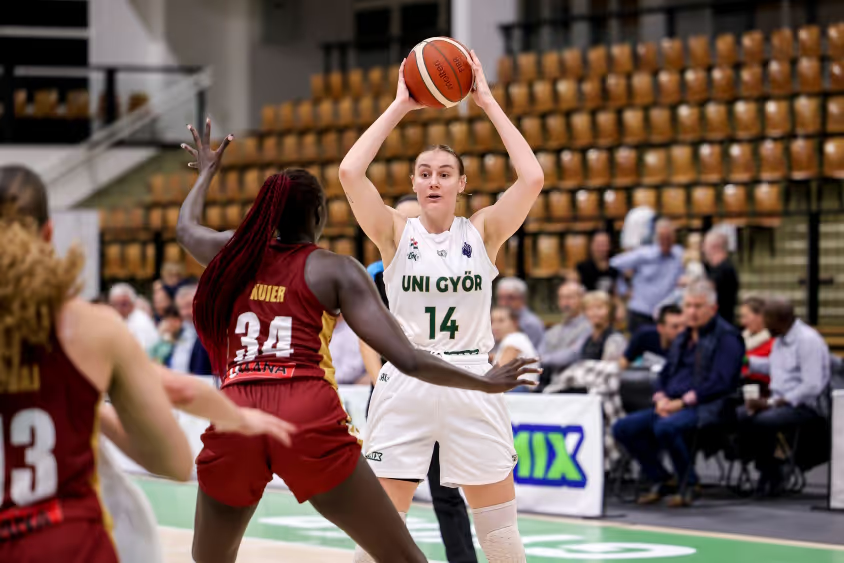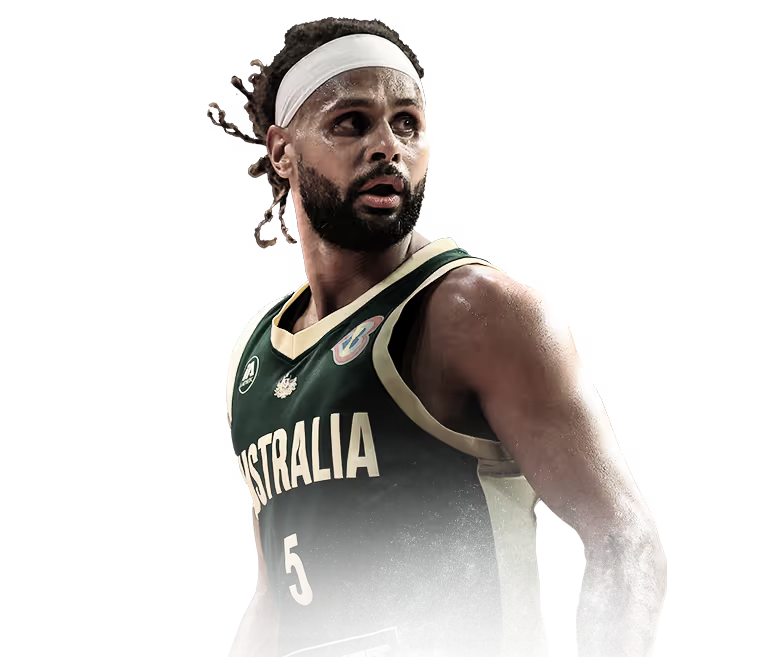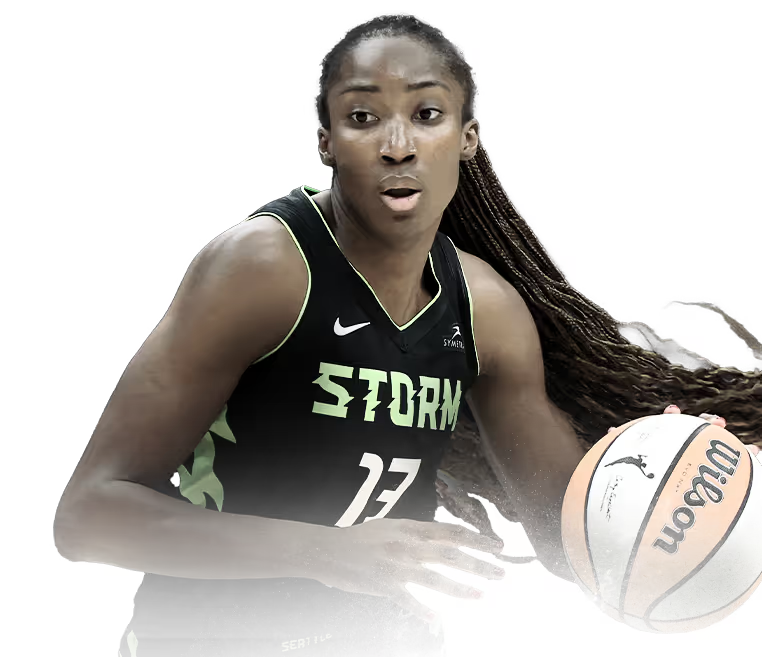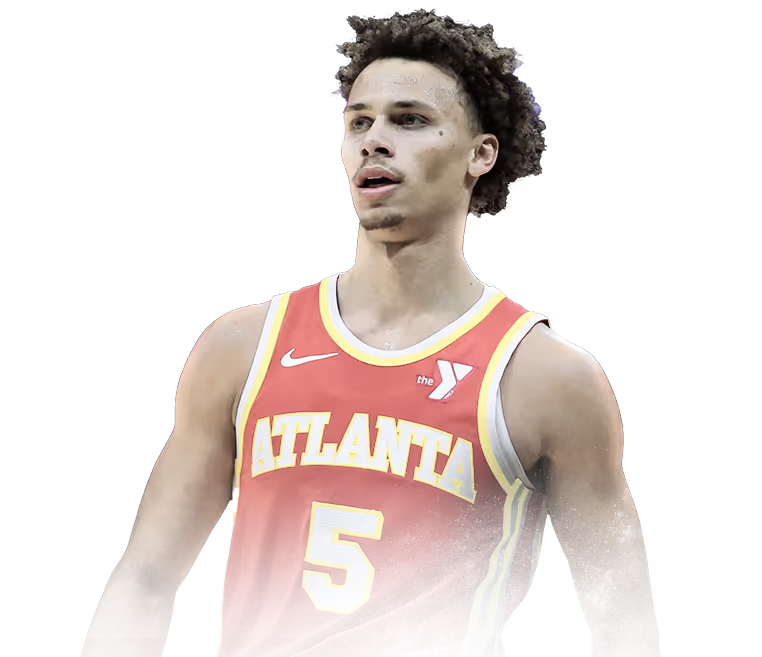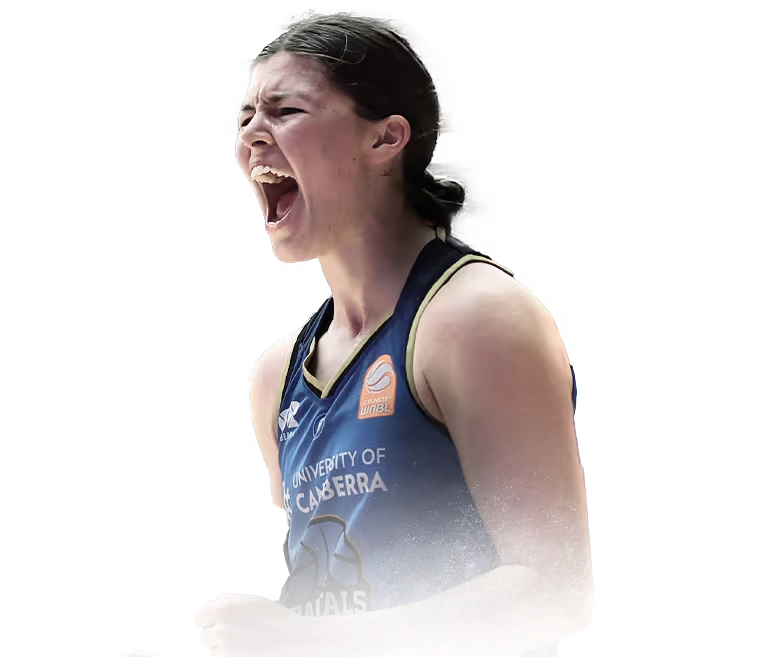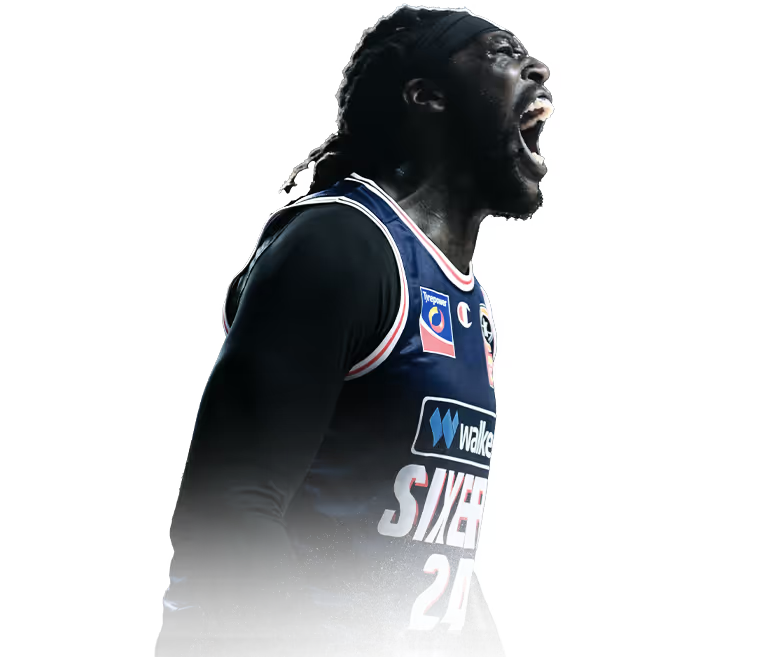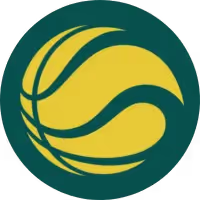

22
Sep
World Cup History
Quest for two: Opals' decorated World Cup history
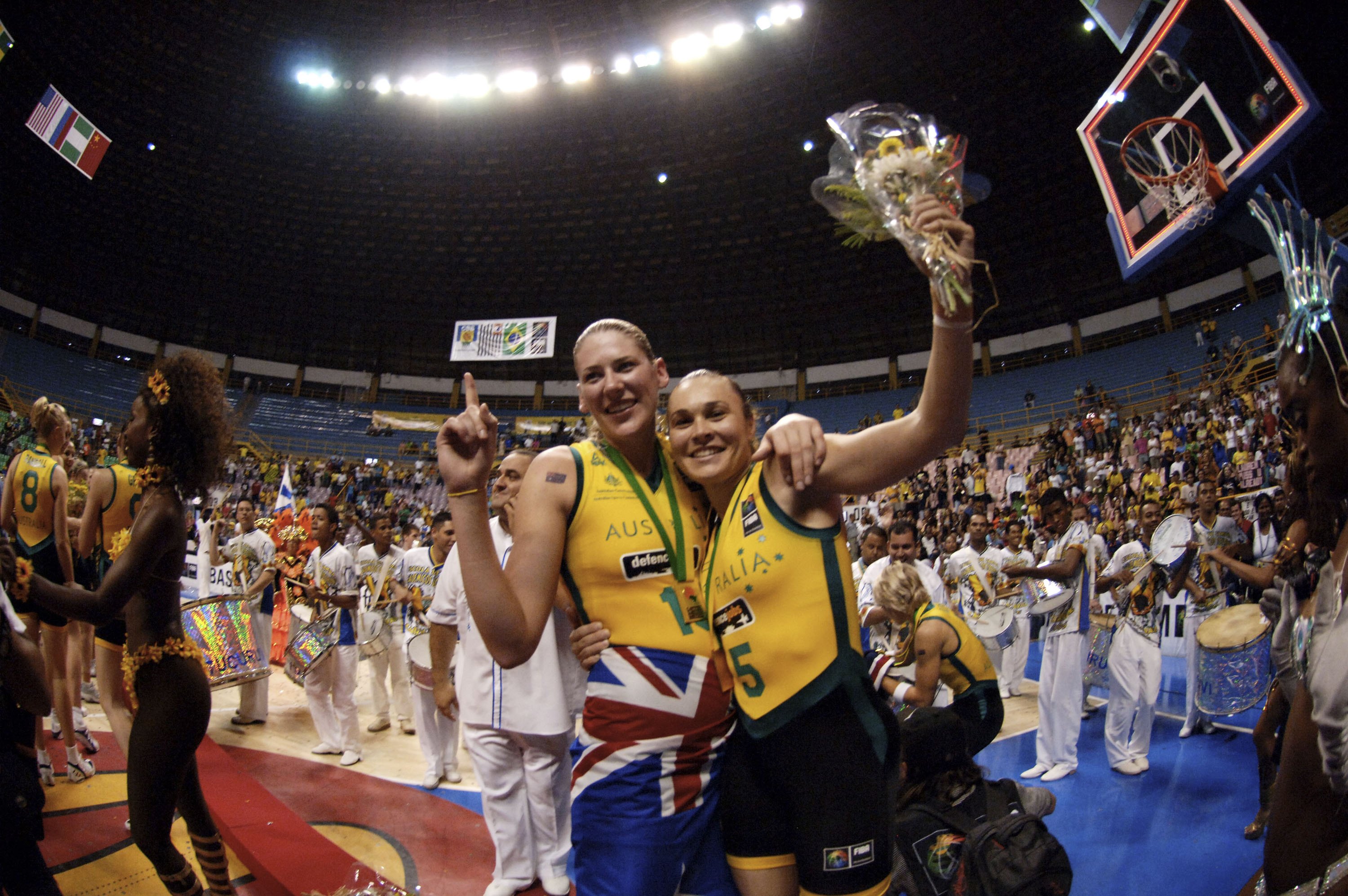

Lauren Jackson #15 and Tully Belivaqua #5 of Australia celebrate after wining the gold medal game between Australia and Russia during the 2006 FIBA World Championship For Women at Constancio Vaz Guimaraes Arena, Ibirapuera on September 23, 2006 in Sao Paulo, Brazil. Photo: Joe Murphy/NBAE via Getty Images
Australian Opals: A fairytale gold and six medals in 16 World Cup tournaments.
- The rise and rise of the Australian Opals
- All-time Australian Opals starting five
- Striking Gold! The 2006 World Champion Opals
- The last step: Opals’ relentless pursuit of gold
The Australian Opals have competed in 16 FIBA World Cups, only missing two tournaments since their debut in 1957.
They have made six podiums in their over 60-year history at the event, taking home four bronze (1998, 2002, 2014, 2022), one silver (2018) and one gold medal (2006). More than 100 women have represented the green and gold at the World Championships or World Cups, with the most games for the Opals being split between Lauren Jackson and Robyn Maher (43).
Here is a complete history of the Australian Opals at the FIBA World Championships and World Cups.
All-Time World Cup Games Played for Australia (Women)
Lauren Jackson – 43 (1998, 2002, 06, 10, 22)
Robyn Maher – 43 (1979, 83, 86, 90, 94, 98)
Kristi Harrower – 34 (1998, 2002, 06, 10)
Sandy Brondello – 32 (1990, 94, 98, 2002)
Penny Taylor – 31 (2002, 06, 10, 14)
Michele Timms – 31 (1986, 90, 94, 98)
Jennifer Whittle – 28 (1994, 98, 2002, 06)
Jenny Cheesman – 28 (1975, 79, 83, 86)
Michelle Brogan – 26 (1994, 98, 2002)
Hollie Grima – 25 (2002, 06, 10)
Allison Tranquilli – 24 (1994, 98, 2002)
Rachael Sporn – 24 (1990, 94, 98)
Karen Dalton – 24 (1983, 86, 90, 94)
Belinda Snell – 23 (2006, 10, 14)
Marianna Tolo – 22 (2010, 14, 22)
Laura Hodges – 22 (2002, 06, 14)
Erin Phillips – 22 (2006, 10, 14)
Patricia Mickan – 21 (1979, 83, 86)
Julie Nykiel – 21 (1979, 83, 86)
Cayla George – 20 (2014, 18, 22)
Rebecca Allen – 17 (2014, 18, 22)
Tully Bevilaqua – 17 (2006, 10)
Karin Fields – 17 (1975, 79, 83)
Trisha Fallon – 16 (1994, 2002)
Liz Cambage – 15 (2010, 18)
Sandra Tomlinson – 15 (1971, 75)
Tess Madgen – 14 (2018, 22)
Sami Whitcomb – 14 (2018, 22)
Steph Talbot – 14 (2018, 22)
Kathryn Foster – 14 (1983, 86)
Sharon Deacon – 14 (1979, 83)
Jill Hammond – 14 (1975, 79)
Maree Jackson – 14 (1975, 79)
Pat Rowe – 14 (1967, 71)
Ezi Magbegor – 13 (2018, 22)
Annie La Fleur – 13 (1994, 98)
Julie Gross – 13 (1975, 79)
Jean Bain – 13 (1967, 71)
Jenna O’Hea – 12 (2010, 18)
Tessa Lavey – 11 (2014, 18)
Samantha Thornton – 10 (1990, 94)
Samantha Richards – 9 (2010)
Suzy Batkovic – 9 (2002)
Carla Boyd – 9 (1998)
Bronwyn Marshall – 9 (1983, 86)
Carole Waters – 9 (1967, 71)
Kristy Wallace – 8 (2022)
Sarah Blicavs – 8 (2022)
Abby Bishop – 8 (2010)
Emily McInerney – 8 (2006)
Jenni Screen – 8 (2006)
Jae Kingi – 8 (2002)
Shelley Sandie – 8 (1994)
Marina Pearce – 8 (1990)
Hellen Gorman – 8 (1990)
Dianne Cook – 8 (1975, 79)
Agnes Dhu – 8 (1971)
Yvonne Waters – 8 (1971)
Rhonda Hynes – 8 (1971)
Jill Hammond – 8 (1971)
Darcee Garbin – 7 (2022)
Joanne Hill – 7 (1998)
Joanne Moyle-Metcalfe – 7 (1990)
Janice Smithwick – 7 (1979)
Susan Harcus – 7 (1975)
Rhonda Hannett – 7 (1971)
Glenys Bauer – 7 (1971)
Elizabeth Franks – 7 (1971)
Rose Verzeletti – 7 (1971)
Alex Bunton – 6 (2018)
Alanna Smith – 6 (2018)
Katie Ebzery – 6 (2018)
Natalie Burton – 6 (2014)
Leilani Mitchell – 6 (2014)
Rachel Jarry – 6 (2014)
Wendy Laidlaw – 6 (1983)
Karen Ogden – 6 (1983)
Ann Misiewicz – 6 (1975)
Jean Forster – 6 (1967)
Teresa Delany – 6 (1967)
Vickie Ticehurst – 6 (1967)
Jean Wilson – 6 (1967)
Lorraine Dutchie – 6 (1967)
Lorraine Eiler – 6 (1957)
Eril Honburg – 6 (1957)
Nita Burke – 6 (1957)
Gaynor Flanagan – 6 (1957)
Nancy Hill – 6 (1957)
Bronte Cocburn – 6 (1957)
Patricina Hoban – 6 (1957)
Anneli Maley – 5 (2022)
Gabrielle Richards – 5 (2014)
Emma Randall – 5 (2006)
Tracey Browning – 5 (1990)
Donna Brown – 5 (1986)
Jan Stirling – 5 (1975)
Ilze Blicavs – 5 (1975)
Elisabeth Elliot – 5 (1967)
Susanna Geh – 4 (1986)
Patricia Cockrem – 4 (1983)
Fran Hammond – 4 (1967)
Lucille Hamilton – 3 (1990)
Marissa Rowe – 3 (1986)
Janet Williams – 3 (1979)
Janice Bowman – 3 (1975)
Mauren Reilly – 3 (1967)
Maree White – 2 (1986)
Rayleen Lynch – 2 (1967)
FIBA World Cup/World Championship Tournament Recaps
1957 – Brazil: Australia competed in their first world championships in 1957, going 2-6 in the tournament. They won their first game against Cuba (50-43) before beating Peru in their final game of the event (38-31).
1967 – Czechoslovakia: The Opals missed the 1959 world championships due to travel restrictions for Australians wanting to travel into the Soviet Union and they would not return to the event until 1967. They went 1-5 for the tournament, only beating Italy in their final game (56-51).
1971 – Brazil: Australia improved in Brazil, finishing the 1971 edition with a 5-3 record, beating Madagascar twice (90-55 and 76-37), Argentina (72-62), Ecuador (68-42) and Canada (55-48). The Opals finished the tournament in ninth place.
1975 – Columbia: The Opals finished the 1975 world championships with a 4-3 record, going down to Czechoslovakia (42-62), the United States (52-65) and Canada (71-73) while having victories against Japan (62-60), Senegal (72-25), Brazil (82-65) and Hungary (75-73).
1979 – South Korea: Australia finished in forth in 1979, their highest finish in the event up to that point. They started the tournament with three wins against Italy (79-76), Malaysia (119-14) and France (59-46) before going down to the hosts South Korea (72-76), the United States (59-74) and Canada (57-66). The Opals finished the world cup with a win against Japan (61-60)
1983 – Brazil: The Australian Opals finished their campaign in Brazil in 11th place with a 3-4 record. They had wins against Japan (84-58), Peru (92-66) and the Democratic Republic of the Congo (86-63).
1986 – USSR: The Opals travelled to the Soviet Union for the 1986 World Championships, finishing in ninth with a record of 3-4. Beating Chinese Taipei (63-55), Brazil (72-57) and South Korea (60-50) in their final three games.
1990 – Malaysia: In 1990, The Opals ended their time in Malaysia in sixth position. Taking scalps off the host nation, Malaysia (96-27), Italy (66-59) and Bulgaria (73-71). They lost to international powerhouses Yugoslavia (70-80) and the Soviet Union twice (60-70 and 73-97) on their way to end the tournament with a 3-5 record.
1994 – Australia: Australia hosted the 1994 World Championships, finishing the tournament in fourth position. They finished the first two stages of the tournament with a 4-2 record before narrowly losing to China in the semi-finals (65-66). The Opals were matched up with the United States in the bronze medal match and lost 95-100.
1998 – Germany: 1998 marked the Opals first medal victory at the tournament, taking home bronze in Germany. Australia beat Spain in the quarter-final (87-54) before going down to Russia in the semis (76-82). They bounced back in the third-place match against Brazil (72-67) and claimed their first world championship podium finish.
2002 – China: Australia claimed their second bronze medal at the 2002 China. They only lost one game in the first two rounds in a one-point loss to Brazil (74-75) before beating France in the quarter finals (78-52). The Opals lost to eventual champions the United States in the semi-final (56-71) but beat South Korea in their bronze medal game (91-63).
2006 – Brazil: The Opals won a historic gold medal at the 2006 world championships, going the entire tournament undefeated. They beat France in the quarter-finals (79-66), host nation Brazil in the semis (88-76) and Russia in the final (91-74). This is still their only gold medal.
2010 – Czech Republic: Australia started the tournament only losing one game in the first two rounds, coming up short against the USA (75-83). Australia was matched up against the host nation Czech Republic in the quarters and came up short 68-79. They won their final two classification games to finish the event in fifth spot.
2014 – Turkey: In Turkey the Opals claimed their third bronze medal. In the group stage they went undefeated, defeating Cuba (90-57), South Korea (87-54) and Belarus (87-45) before knocking out Canada in the quarter-final (63-52). They lost to the USA in the semi-final (70-82) but bounced back and won bronze against the host nation (74-44).
2018 – Spain: The Opals won their first silver medal at the World Cup in 2018, losing to the United States in the gold medal match 56-73. Australia went undefeated on their way to the tournament final, beating Nigeria (86-68), Argentina (84-43) and Turkey (90-64) in the group stage. They rolled over China in the quarter-final (83-42) and beat Spain in the semi-final (72-66) to lock in an automatic medal.
2022 – Australia: Australia hosted the World Cup for a second time in 2022, winning bronze on home soil. The Opals lost their opening game to France (57-70) but won five games in a row to make the semi-final. Winning against Mali (118-58), Serbia (69-54), Canada (75-72) and Japan (71-54) in the group stage, and beating Belgium (86-69) in the quarter final. They unfortunately lost to China in the semi-final by two points (59-61) but won the third-place game against Canada (95-65).
Exclusive Newsletter
Aussies in your Inbox: Don't miss a point, assist rebound or steal by Aussies competing overseas. Sign-up now!



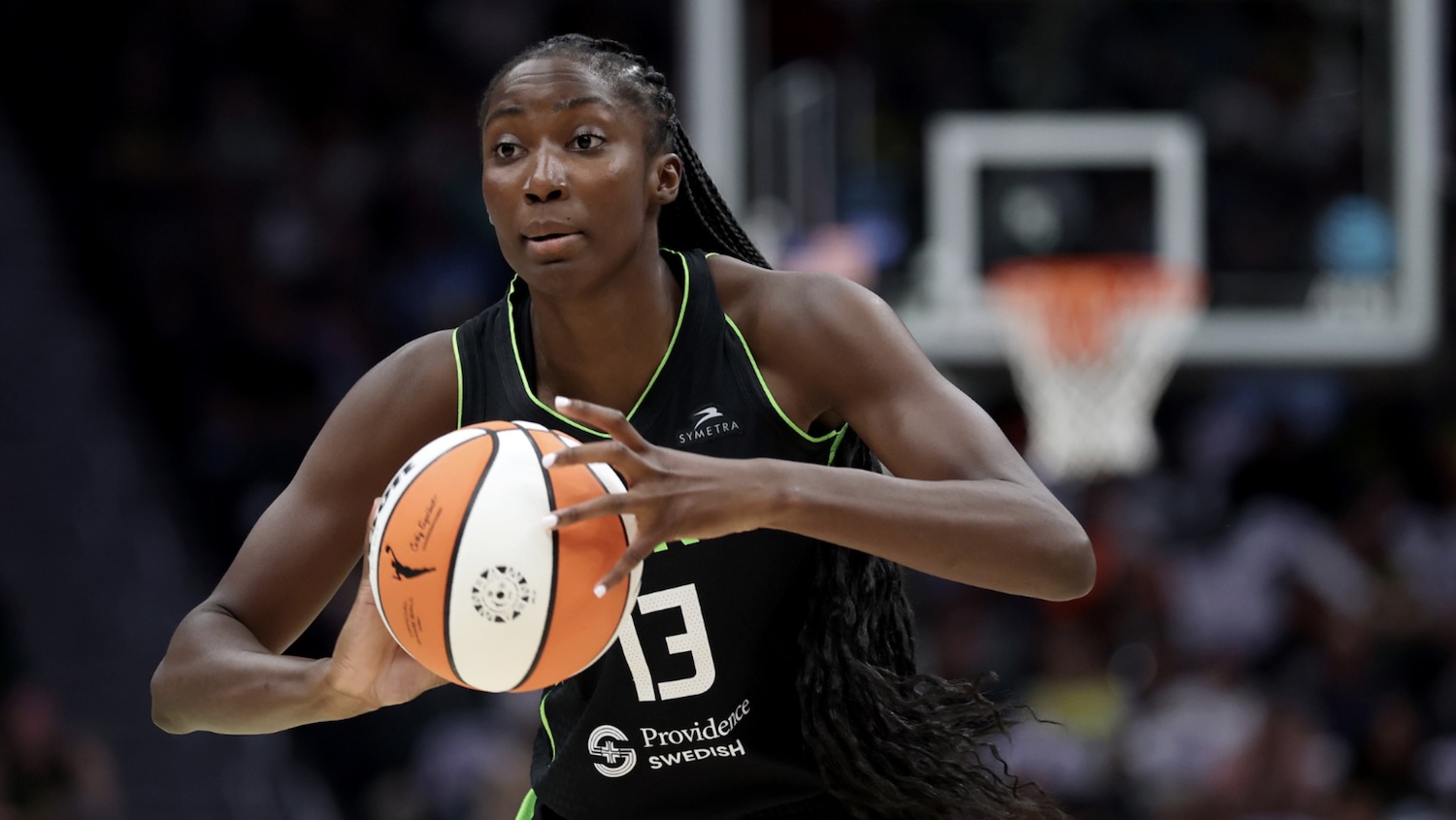
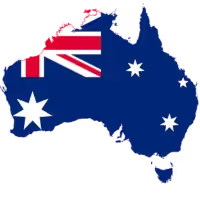



.png)

.png)
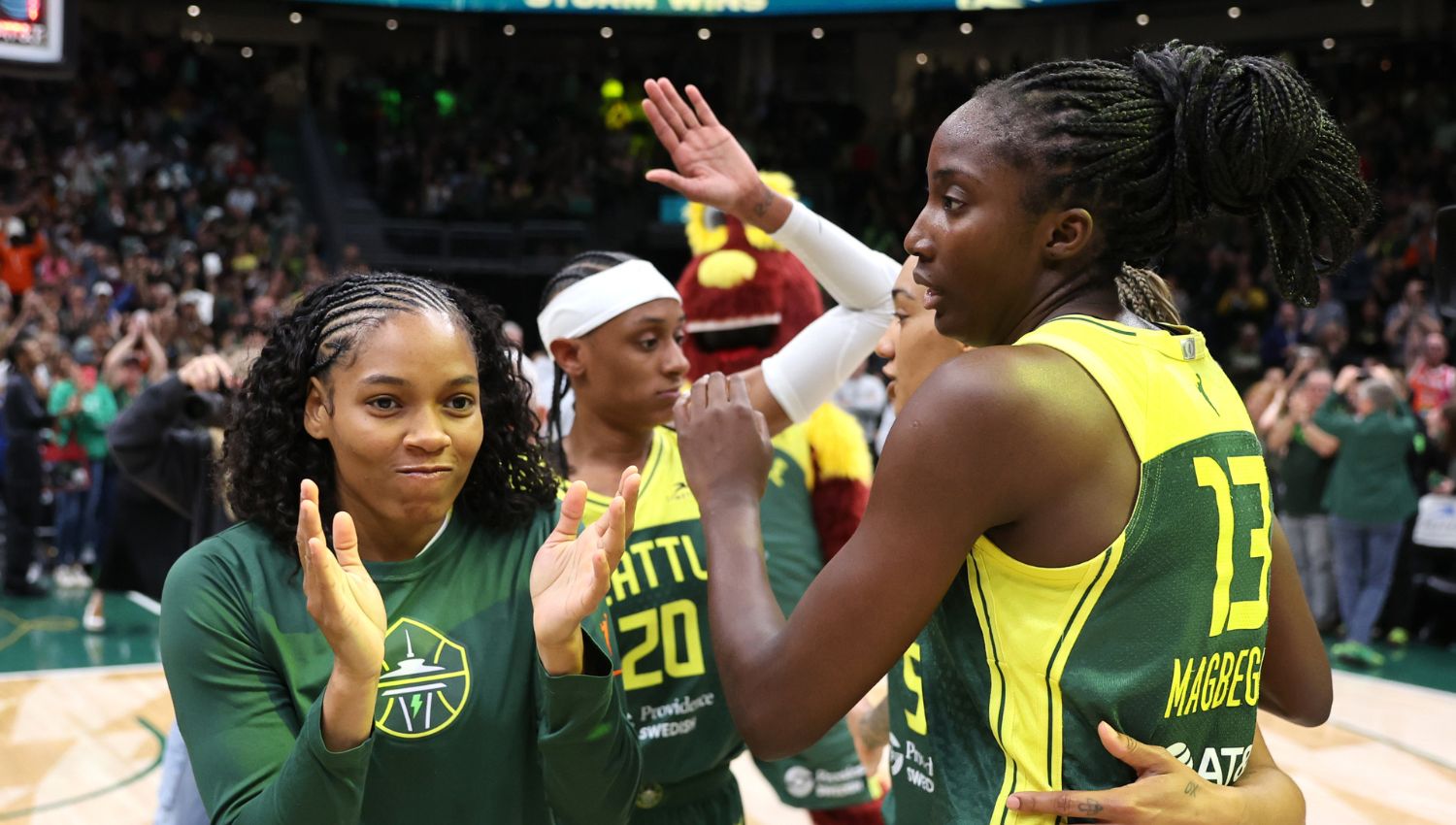

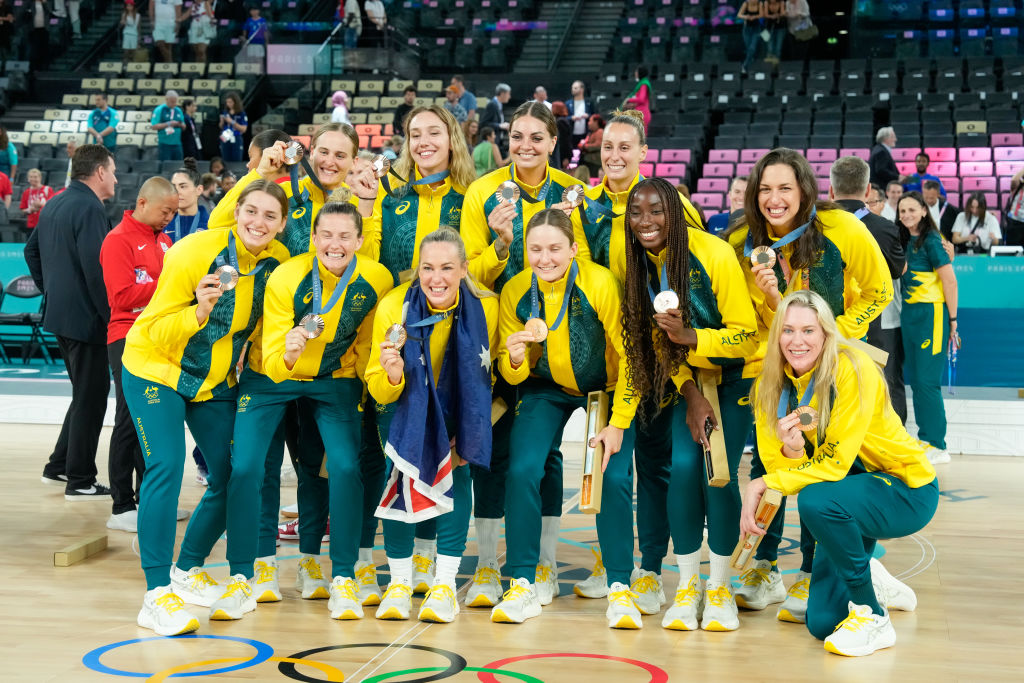
.png)
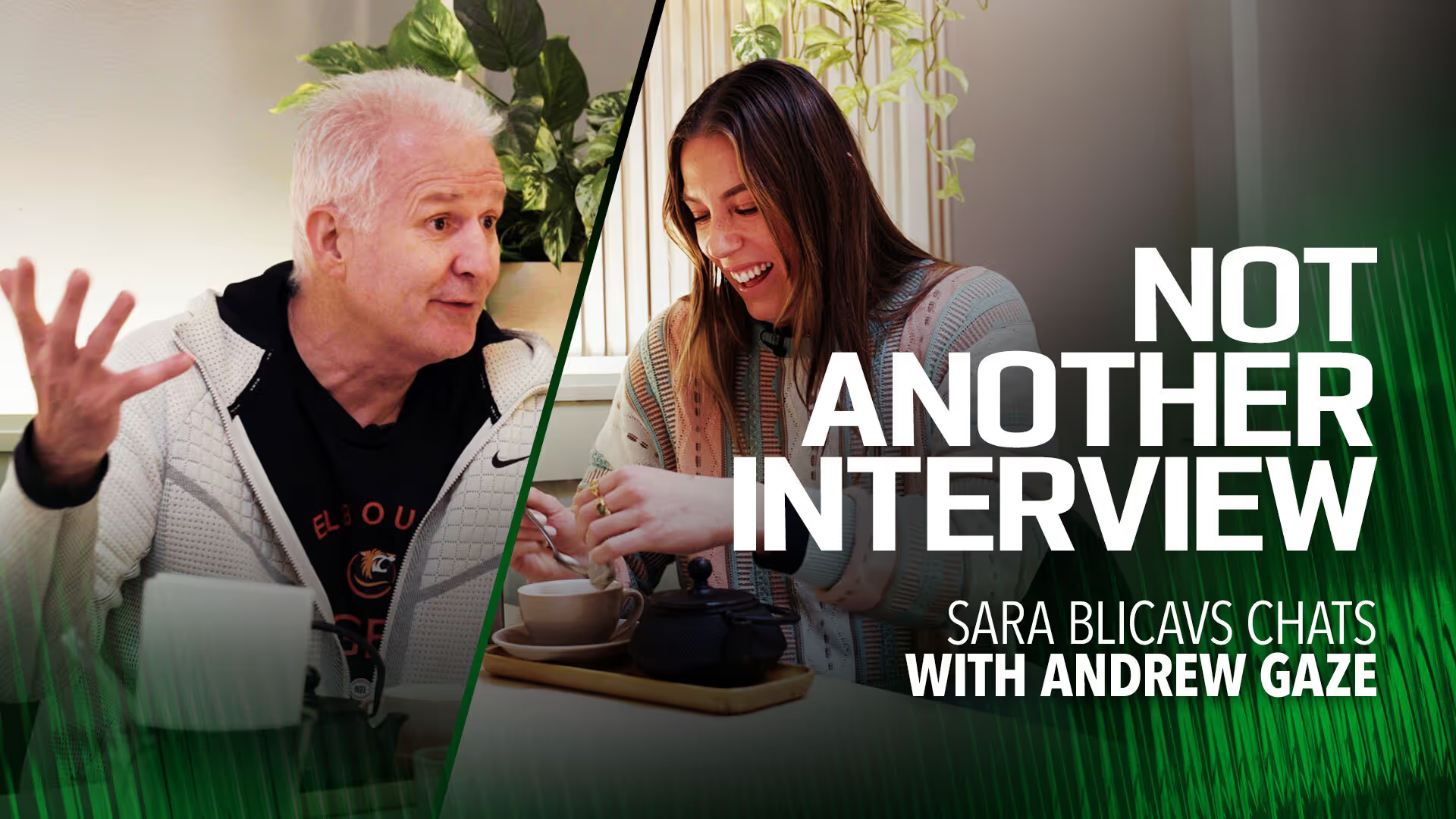
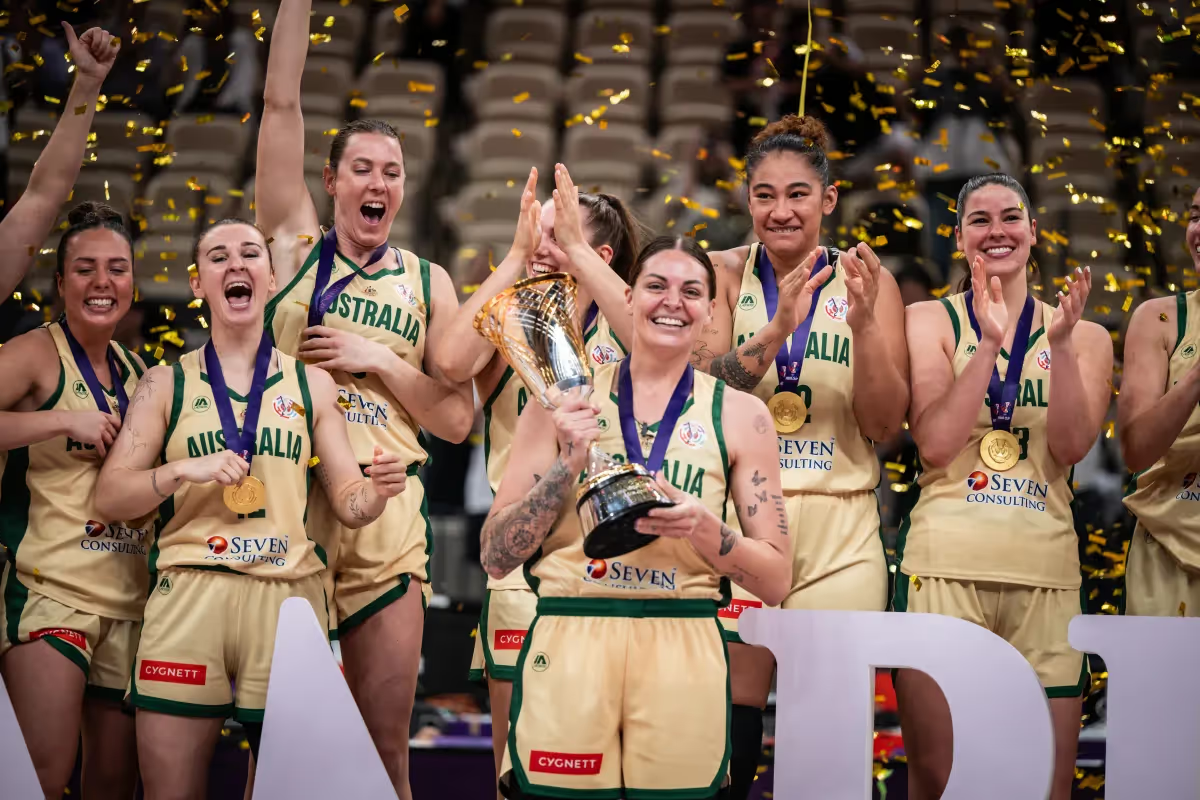
.png)
.avif)
